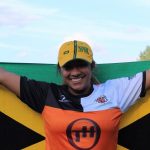Initial findings from a UK community-based COVID-19 study show that people with MS had no higher risk of contracting COVID-19 than the general population, during the early phase of the pandemic when strict precautions were taken.
The UK MS Register at our client Swansea University launched the study before the national lockdown was announced.
With no accurate or accessible test to diagnose COVID-19 at the time, the researchers relied on self-diagnosis, based on symptoms – an approach adopted in other large-scale studies and in line with UK government policy not to seek medical advice for mild symptoms.
Published by BMJ’s Journal of Neurology, Neurosurgery & Psychiatry , the findings from March (17th) to April (24th) 2020, show out of 3,910 participants, 237 (6.1%) reported self-diagnosed COVID-19, among whom 54 (22.8%) also had a diagnosis by a healthcare professional based on symptoms and 37 (15.6%) a confirmed diagnosis by testing.
Three participants were hospitalised due to COVID-19, and no deaths were reported.
Rod Middleton, the paper author and programme manager and system architect of the UK MS Register at Swansea University, said: “The low hospitalisation rate may be due to the patient-reported nature of the study. People who are hospitalised are less able to respond to surveys.
“We were not surprised that self-isolating people with MS had a lower risk of contracting COVID-19, and we found older people with MS and those with Progressive MS to be less likely to have COVID-19 due to the fact that they were self-isolating more.
“Similar to previous research, we found evidence that people with MS from non-Caucasian ethnicity had a higher chance of contracting COVID-19, but we will need to study larger numbers to confirm this.”
You can read the full story here.
We have extensive experience of working with universities. Last year, our PR and communications projects with Cardiff University and Swansea University both won awards. London South Bank University has called us in to work on new internal communications, and in partnership with our colleagues at EMPRA, we won a major web-writing project at City, Univerity of London.




